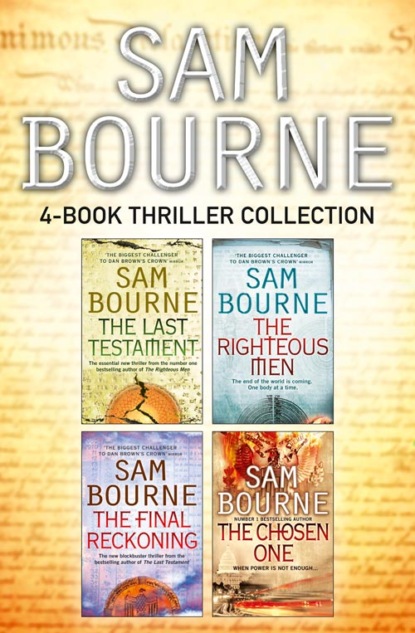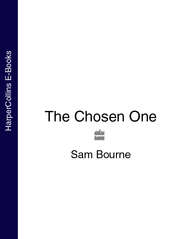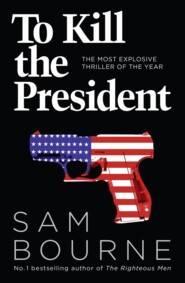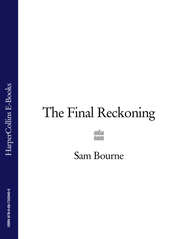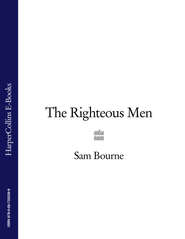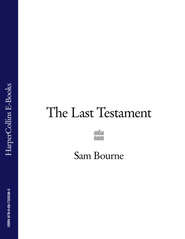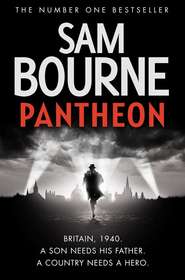По всем вопросам обращайтесь на: info@litportal.ru
(©) 2003-2024.
✖
Sam Bourne 4-Book Thriller Collection
Автор
Год написания книги
2018
Настройки чтения
Размер шрифта
Высота строк
Поля
‘Hi babe, have you seen the paper today?’
‘Yes, I’m fine thank you. How kind of you to ask.’
‘Sorry, it’s just – have you got it there?’
‘Hold on.’ A long pause. ‘OK, what am I looking for?’
‘Anything by me.’
‘I looked this morning. I couldn’t see anything. I thought maybe you were going to do more work on it today.’
Will tutted silently: of course he wasn’t going to work on it today. It was an on-the-day news story, about weather for Christ’s sake: there was no more perishable commodity in journalism than a weather story.
‘You checked the National section inside? Each page?’
‘I did, Will. I’m sorry. Does this mean they didn’t use it?’
That was exactly what it meant: his story had been spiked.
He braced himself for a call to the desk. If anyone but Jennifer, the news clerk, answered, he would hang up. He dialled.
‘National.’ Jennifer.
‘Hi, Jennifer, it’s Will Monroe here, out in Seattle.’
‘Oh hi. Wanna speak to Susan?’
‘No! No. No need. You know that piece I filed yesterday, from the floods? Do you know what happened to it?’
Jennifer’s voice suddenly dipped.
‘Kind of. I heard them talking about it. They said it was very nice and all, but that you hadn’t talked about it with them first. If you had, they’d have told you they didn’t need a story yesterday.’
‘But I did speak . . .’ Of course. He had only talked with Jennifer, told her his co-ordinates and his plans. He had assumed they wanted him to file. Had Harden not told him to pack his galoshes?
Now he realized: he was in Seattle just in case. He was keeping Bates’s seat warm. All that soaking effort yesterday had been in vain. He felt embarrassed, like an over-eager intern. It was a stupid mistake.
‘Hold on, Susan wants a word.’
Three time zones away, Will readied himself for a roasting.
‘Hi, Will. Listen, I think the rule ought to be no filing unless we’ve talked about it first. OK? Maybe just find something that interests you, poke around a bit and see what it’s worth. As for spot-news, keep your phone on and we’ll call you if we need anything.’
Will ate a glum breakfast. He had screwed up and screwed up badly. By now Jennifer would have spread the word among the tiny circle of Times staffers in their twenties: they would be having a good laugh at his expense. The golden boy with a big-shot daddy had come down to earth.
There was only one solution. He would have to reel in a proper story. Somehow, from this far-off patch of snow, timber and potatoes, he would have to eke out a tale that would prove to New York that they had not made a mistake. He knew exactly where he would go.
EIGHT (#ulink_71f45bbe-46da-5441-b5d7-1432eec44839)
Wednesday, 3.13pm, Washington State
The flight across Washington State had been brief, if bumpy, and the drive from Spokane gorgeous. The mountains were almost painfully beautiful, each cap dusted with a snow that looked like the purest powdered sugar. The trees were as straight as pencils, lines of them, so densely packed, the light almost seemed to strobe.
He was driving east, soon crossing the state line into Idaho – or at least the long, slender upper part of the state where the United States appears to be giving the finger to its northern neighbour, Canada. He drove past Coeur d’Alene, which sounded like a Swiss skiing village but which was most famous as the home of a racist movement known as the Aryan Nations. Will had seen the pictures in the cuttings: the men dressed in quasi-Nazi uniforms, the ‘whites only’ sign at the entrance. It would make a fascinating stop, but Will did not leave the road. He had somewhere to go.
His destination lay across the Idaho finger, in the western part of Montana. The roads were small, but Will did not get frustrated. He loved driving in America, the land of the endless road. He loved the billboards, promoting furniture stores thirty-five miles away; he loved the Dairy Queen rest-stops; the bumper stickers, advising him of the politics, religion and sexual preferences of his fellow drivers. Besides, he was planning his attack.
He had spoken already to Bob Hill, who was expecting him. Dutifully, Hill had conformed to the media caricature of a backwoods gun-nut. He asked to have Will’s full name and social security number: ‘That way I can check you out. Make sure y’are who y’say y’are.’ Will tried to imagine what Hill’s research would turn up on him. Brit? That would be OK. Americans usually liked Brits. Even if they hated limp-wristed, faggot Europeans, Brits were OK: they were kind of honorary Americans. Father a federal judge? That could be problematic; federal officials were despised. But judges were not always lumped in with the rest of the hated bureaucrats who represented ‘the government’. Some were even seen as the protectors of liberty, fending off the encroaching hand of the politicians. If Hill looked, though, he would find plenty in Judge Monroe’s record that was bound to offend. Will hoped his host was not going to dig too deep.
What else? Parents divorced: that might rile the militia men. Mind you, this wasn’t Alabama; the survivalists were not the same as the Christian right. There was some overlap, but they were not identical.
The daydream ended the moment he saw the signs. ‘Welcome to Noxon, Population: 230’. He looked down at the scribbled note perched on his lap: Hill’s directions. He had to turn left at the gas station, down a road that would become a path. The SUV began rocking from side to side, over the ruts of mud, earning, or so Will liked to think, the extra charge he, and therefore the Times, had had to pay for it.
Soon he reached a gate. No sign. He was about to call Hill, as arranged, but he was halfway through dialling the number when a man became visible in his windshield. Early sixties, jeans, cowboy boots, old jacket; unsmiling. Will got out.
‘Bob Hill? Will Monroe.’
‘So you found us OK?’
Will went into a hymn of praise for Hill’s directions, seeking to break the ice with some shameless flattery. His host grunted his approval as he trudged up a hard mud bank, heading in the direction of what seemed to be a thick patch of forest. As they got closer, Will began to make out a glow of light: a cabin, rather brilliantly camouflaged.
Hill looked to his waist, where a thick jailer’s ring of keys was weighing down one of his belt loops. He let them in.
‘There’s a chair there. Make yourself comfortable. I’ve got something to show you.’
Will used the few seconds he had to look around: a metal shield on the wall, bearing a vaguely military insignia. He squinted: MoM. Militia of Montana. There were a few framed photographs, including one of his host holding the head of a dead stag. On the metal shelves, a box of leaflets. Will peered inside: ‘The New World Order: Operation Takeover.’
‘Help yourself, take a copy.’ Will whisked around to find Bob Hill right behind him. Ex-Marine, Vietnam; of course he would know how to creep up on a mere civilian like Will. ‘Wrote it myself. With the help of the late Mr Baxter.’
‘So he was . . . deeply involved?’
‘Like I told you on the phone, a fine patriot. Ready to do whatever it took to secure the liberty of this nation – even if his nation was too duped, its brains too addled by the propaganda of the Hollywood élite, to realize its liberty was under threat.’
‘Whatever it took?’
‘By whatever means necessary, Mr Monroe. You know who said that, don’t you? Or was that before your time?’
‘It was before my time, but I do know. That was the slogan of the Black Panthers.’
‘Very good. And if that was good enough for them in their struggle against “white power” then it’s good enough for us in our struggle to keep America free.’
‘You mean violence? Force?’
‘Mr Monroe, let’s not get ahead of ourselves. You can ask me all the questions you like, I got plenty of time. But first, I have something to show you. See if this interests the great East Coast intellectuals of the New York Times.’
By now, Hill was seated, behind a battered old metal desk, one that would not have looked out of place in the office section of an auto-repair shop. He handed Will, who was still standing, two sheets of paper, stapled together.
It took a few seconds for Will to work out what he was looking at. The notes on the autopsy performed on the body of Pat Baxter.





